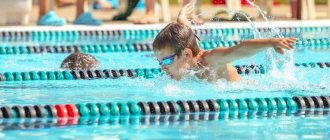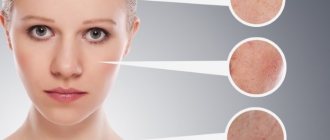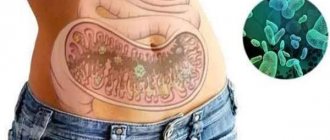How much fluid do children of different ages drink?
Each child's needs are individual. This applies to both infants and preschoolers.
How much water he drinks per day, in addition to physiological parameters (age and weight), depends on:
- metabolic rate;
- physical activity;
- dietary features;
- outdoor weather and indoor microclimate.
Therefore, we can only talk about the approximate daily norm (it includes not only pure water, but also other drinks, soups, and water in food):
| Child's age | Recommended daily volume (ml) of clean water |
| From birth to 3 months | from 0 to 100-120 |
| 3 months | 125-130 |
| 4-5 months | 140-150 |
| From 6 months to a year | 220-250 |
| 1-1.5 years | 350-400 |
| 1.5-2 years | 500-550 |
| 2-3 years | 650-750 |
| 3-5 years | 850-950 |
| 6 years | 1000-1200 |
| up to 10 years | 1200-1400 |
| 10-14 | 1400-1500 |
For babies, a lot depends on the type of feeding. Formulas contain more protein than breast milk - to digest them, the baby needs water from birth.
Breastfed babies begin to drink only at 4-5 months. They are “accustomed” to drinking gradually, with 30-40 ml per 1 kg of weight per day.
Important! A newborn who refuses to drink should not be forced to drink. Babies have very strongly developed instincts; he himself will “tell” his mother when he begins to feel thirsty.
Why children are water-drinkers - reasons
“Water feeding” manifests itself in the fact that a small child has to be put to the breast more often. Older children are asked to drink during and after meals, before bed. The reasons explaining this can be divided into several groups.
Physiological factors for children 4-5 months:
Weather. Drinking more in hot weather is absolutely normal for a child of any age, but it is especially common for babies.
High temperature provokes increased loss of water - it leaves the body through sweat.For the same reason, a baby may drink a lot after bathing (the body warms up in hot water), and if he is dressed too warmly, he is tightly bundled up.
- Indoor conditions . In winter, in most apartments, the air humidity is lower than in summer - it is “dried” by radiators and other heating devices. Excessive dust in the room also provokes thirst. Infants are most sensitive to these factors.
In children aged one to two years, sweetened water is most often the culprit. It quenches thirst worse than usual, so the baby’s needs increase.
Parents who initially give him sweet water accustom him to this taste, so the child will most likely refuse plain water, considering it “fresh.”
In a 3-year-old child, you need to pay attention to changes in diet. If a child begins to drink too much, it is necessary to analyze changes in nutrition. New products often provoke an increased need for water.
6-year-old children are often influenced by other physiological factors:
- Eating fried, salty, spicy, smoked, fatty, sweet.
- Least favorite food. If the food is not liked, the child does not produce enough saliva. He asks for water while eating in order to chew and swallow it, and after the meal, wanting to “wash away” the unpleasant aftertaste.
- Physical activity. Exertion naturally causes thirst in anyone, this is due to increased sweating. The more active a child is, the more he drinks.
Psychological nuances (the first two are typical for children aged 1-3 years, the last - for those older than 4-6 years):
Formed habit. The child, to a certain extent, becomes “attached” to a bottle with a nipple or a sippy cup.
In the future, he drinks from it very little, but often, drinking it simply to “calm himself.”You can cope with such “addiction” caused by the sucking reflex by offering him a drink from a new, bright or unusual mug or glass each time in response to a request.
- Attention deficit. By asking for a drink, a small child naturally receives a portion of maternal attention. This situation is not uncommon when a baby is weaned - having gotten used to seeing his mother nearby both day and night, he experiences a psychological need for this.
- Nervous overload. They can be caused by anything - problems in kindergarten, school, the moral climate in the family. Any stress factor that makes the child very worried provokes increased thirst.
- Reluctance to go to sleep. To delay the “unpleasant” moment, young children come up with any excuses - to drink, eat, go to the toilet, listen to a fairy tale. Therefore, in the evening they may drink more than they actually want.
Diseases:
- Diabetes insipidus . Constant thirst is accompanied by frequent trips to the toilet and an increase in the volume of urine.
- Diabetes. Excessive drinking and frequent desire to urinate are complemented by general lethargy, weakness, irritability, decreased muscle tone, and a sharp increase in appetite (the child is especially drawn to sweets). Also characteristic are increased sweating, frequent itching, sudden changes in weight (in any direction), deterioration of skin regeneration, and sticky urine.
- Any kidney problems. Associated symptoms are lethargy, increased fatigue, pallor, swelling (especially in the legs), pain in the lumbar region and/or when urinating, increased temperature for no obvious reason.
- Pathologies of the liver and gall bladder. One of the main symptoms is a constant bitter taste in the mouth. Wanting to “wash away” it, the children drink almost incessantly.
- Worm infestation and other parasites in the intestines. Increased thirst is complemented by pain in the lower abdomen, frequently changing appetite, attacks of nausea, problems with bowel movements, severe itching in the anus, and frequent mood swings.
Causes of constant thirst
Why do you always want to drink? Constant thirst can be a signal of serious diseases; below we will describe each of them.
- Diabetes. A person with diabetes drinks a lot of fluids, but still feels thirsty. If constant thirst occurs after taking sugar-lowering drugs or insulin, then most likely the disease worsens. It is necessary to consult a doctor and have your blood tested for sugar levels and take medications that lower blood glucose levels.
- Brain injury. After a head injury or neurosurgery, there is also a strong desire to drink. Thirst manifests itself very acutely; a person can drink 10-15 liters per day. Diabetes begins to develop, leading to a lack of hormones that limit urination.
- Kidney diseases. Unhealthy kidneys are also the reason why you want to drink a lot. Kidney disease causes an increased need for fluid because you are unable to retain it effectively. Such diseases are also characterized by edema, and can develop into a serious complication: renal failure, which is life-threatening. It is necessary to urgently consult a nephrologist.
- Excess hormones. With an excess of hormones, the function of the parathyroid glands increases, which is why you really want to drink. In addition to thirst, fatigue, sudden weight loss, pain in the bones, and rapid weakness appear. The urine, in this case, takes on a whitish tint, as calcium is washed out of the bones. With such symptoms, you urgently need to visit an endocrinologist.
- Constant thirst can also be caused by certain medications, antibiotics and diuretics.
How can you cope with constant thirst?
- Try to replenish fluids until you feel very thirsty. To avoid feeling constantly thirsty, drink half a glass of clean water every hour. If you are in a warm and dry room, increase the amount of fluid you consume. It is recommended to drink at least 1.5-2 liters of liquid per day.
- Watch your urination. To prevent dehydration, you need to drink enough fluid so that your urine is not too dark or too light in color. Urine that is moderately yellow indicates that there is sufficient fluid in the body.
- Why do you feel thirsty at night? Drink clean water during physical activity and sports training. During hard work, the human body loses up to 2 liters of fluid, and only then does it feel thirsty. To prevent dehydration, you should drink half a glass of water every 15-20 minutes while working or exercising.
- If you already consume a large amount of fluid, but are still thirsty, you should conduct a blood sugar test. Perhaps the cause of thirst is diabetes, which is why you often want to drink. It is necessary to conduct a full examination, adhere to treatment and diet.
Having found out why you want to drink, you will no longer be so indifferent and inattentive to it. After all, the body is capable of giving us alarming signals even before any disease is detected. Don't neglect them. Be healthy!
Thirst or polydipsia is the need to drink fluid more often and in larger volumes than during normal life activities. The feeling of thirst can be a signal of a serious pathology or an adaptive reaction to environmental conditions (in a hot climate). The presence of other symptoms, laboratory and instrumental studies allow us to identify the exact cause. In most cases, thirst occurs due to diabetes, high fever, and renal failure.
Is there a difference between drinking during the day and drinking at night?
If a child asks to drink more often at night than during the day, there is a completely logical explanation for this.
During sleep, the kidneys work more actively , removing excess water into the bladder.
Its loss is also aggravated by sweating if the room is hot and stuffy. An adult can easily sleep until the morning in this state; children are more susceptible to this.
Other possible causes of night thirst:
- Just a habit. When a small child woke up at night, the mother invariably brought a glass of water. Over time, she stops doing this, and he simply cannot fall asleep again without drinking. To get rid of this habit, parents will need a lot of patience.
- Food. You need to remember what the child ate for dinner. If it was salty, spicy, or just heavy food, thirst is understandable.
- Attention deficit. If a child wakes up at night, he considers it necessary to remind his mother about himself. Any excuse is suitable for this.
Attention! Most pediatricians consider drinking at night and drinking heavily in the evening to be harmful to the body. This increases the load on the kidneys and excretory system as a whole, which is undesirable in a relaxed state during sleep.
What could be the consequences?
If a child’s increased thirst is easily explained, parents should not worry.
It is enough to eliminate the “irritating” factor , and everything will return to normal by itself.
But it should be remembered that constantly drinking little water at any age is simply dangerous (due to impending dehydration), and drinking too much is harmful.
There is even a special term in medicine – “water intoxication”. Drinking significantly more than the norm is harmful to all organs and tissues (digestion especially suffers).
Excess fluid entering the body:
- "knocks down" metabolism
- disrupts the water-salt balance,
- “leaches” electrolytes and nutrients.
As a result, the permeability of cell membranes increases, they simply cannot perform their functions and die.
Reference! Symptoms of “water intoxication” are swelling, causeless irritability, constant drowsiness, low body temperature, convulsions. They appear most quickly in young children (under the age of one year).
Another dangerous consequence is that the kidneys remove more sodium from the body than usual. Its deficiency in combination with excess water can provoke cerebral edema, increased intracranial pressure, and chronic severe migraines.
“Water intoxication” naturally provokes an increase in urine volume and more frequent urination. The bladder stretches, and when the volume of water consumed daily decreases, it can no longer perform its functions normally.
What kind of water to give your child
It is best to give your baby special baby water to drink. Water must be bottled, not mineral and without gases.
Attention! Mineral water is contraindicated for children under 3 years of age! Without medical prescription, it can be harmful to the kidneys.
According to the Roskontrol examination, the following waters are recognized as safe:
- “Frutonyanya” – in terms of general indicators it is the best;
“Agusha” - silver ions are found in it, but in general it is safe for babies;
“Malyshka” – its calcium content is higher, but it is also recognized as safe.
Water in a bottle is stored open for 48 hours; after this period it is better not to give it to the baby. When purchasing water, make sure it:
- medium mineralized;
still.
If you give boiled water, then you need to boil it for 10-15 minutes.
The water temperature for babies up to 2 months should be 25–30 degrees, after 2 months – 20 degrees.
It is better not to give water from open sources to children.
Before sounding the alarm about excessive thirst, watch your baby; perhaps there is no problem at all, or it can be solved on its own.
Adults are responsible for the upbringing and proper organization of the lives of the younger generation. To do this, you need to have information on issues of concern. Today we want to answer one of the frequently asked questions - why does a child drink a lot of water?
. Let us remind you that 70% of a person consists of liquid. It is advisable for an adult to drink up to 2 liters of clean water every day. Thus, fluid balance will be maintained in the body. The body of a baby in the womb consists of 95% water, and a newborn – 80%.
A breastfed baby does not need water at all in the first months of life; everything is in mother’s milk. But at approximately 4 months you can start giving it. Up to four years of age, children need 800 ml of liquid per day; from 4 to 7 years old, 950 ml per day is considered the norm. After 7 years, the need increases to 1.5 liters per day.
It is necessary to determine what time of year he does this. During the hot summer months, appetite decreases significantly and drink consumption almost doubles. But if drinking outside of the summer period significantly affects the decrease in the baby’s appetite, then the nutritional system should be adjusted. Water fills the stomach and thereby reduces appetite, so children, especially small ones, should not be given drinks before or during meals.
If children drink heavily throughout the day and feel well, then mother should not worry. But, if there is a change in the child’s behavior or well-being—frequent urination, pain, fever—you should immediately consult a doctor. In this case, you need to record how much the boy or girl drinks per day and how often he goes to the toilet. Most likely, you will need to test it for sugar.
Possible associated symptoms
Constant extreme thirst may be a symptom of a serious illness if it is accompanied by:
- heavy sweating;
- nausea, vomiting;
- diarrhea;
high temperature, dry skin and mucous membranes, cracked lips;- changes in urination (volume, quality, color of urine);
- sudden weight fluctuations;
- lethargy, fatigue, drowsiness;
- swelling;
- pale skin;
- sunken eyes.
In this case, only a doctor can make a diagnosis based on laboratory or other tests.
What should parents do?
To understand whether something needs to be done at all if the child drinks a lot and often, parents need to analyze the situation as a whole:
- “exceeding the norm” - is it a constant phenomenon or has it arisen recently;
- when there is increased thirst - all day or only in the evening, at night;
- what exactly does the child prefer to drink?
- Are there any other symptoms?
When increased thirst in a child of any age is caused by a physiological or psychological factor, it is enough to eliminate it:
- For children aged 4-5 months - normalize the indoor microclimate. The optimal level of air humidity in a nursery is 50% or higher, the recommended temperature is 22-24°C.
- For one- and two-year-olds – reduce the amount of sweet drinks. It is simple to check whether a child is really thirsty: just offer plain water instead. It is recommended to gradually dilute compotes and juices with more and more water. Children are taught to drink this way from about six months of age; if you do not get rid of this habit before they are a year old, problems may arise later.
- For 3-year-olds – adjust the diet in favor of healthy eating principles.
- For 6-year-olds - to normalize the psychological situation: pay more attention to the child, protect him from clarifying relationships in the family, help solve problems in communicating with peers. Children at any age are equally sensitive to the moral climate, even if they cannot say about it yet.
Important! If none of the above helps, the only option left is a visit to the hospital, and you can’t delay it. It is first recommended to roughly calculate how much and what the child drank per day, what was the volume of urine.
What is thirst?
Polydipsia is a term used to describe excessive thirst and is one of the first symptoms of diabetes. This is usually accompanied by temporary or prolonged dry mouth. We all feel thirsty at different times during the day. Adequate daily water intake is very important as it is essential for the body's existence, including regulating body temperature and eliminating waste. However, if you feel thirsty all the time, or if you feel thirstier than usual and continue even after you drink, then this may be a sign of some kind of disease in the body.
Primary polydipsia refers to excessive thirst and water consumption caused by a lack of physiological incentive to drink. It includes both psychogenic primary polydipsia and non-psychogenic polydipsia, for example, in patients with autoimmune chronic hepatitis, with highly elevated globulin levels. Psychogenic polydipsia is excessive water intake seen in some patients with mental illnesses such as schizophrenia. This should be taken very seriously because drinking more than safe levels of water that can be excreted by the kidneys is, in rare cases, life-threatening because serum sodium levels are diluted to the point that seizures occur and this can precipitate cardiac arrest.
Content:
- What is thirst?
- Causes of thirst
- Symptoms of thirst
- When to seek medical help?
Excessive fluid intake may lead to a false diagnosis of diabetes insipidus, since chronic drinking of water often produces diagnostic results that closely mimic the symptoms of diabetes insipidus.









